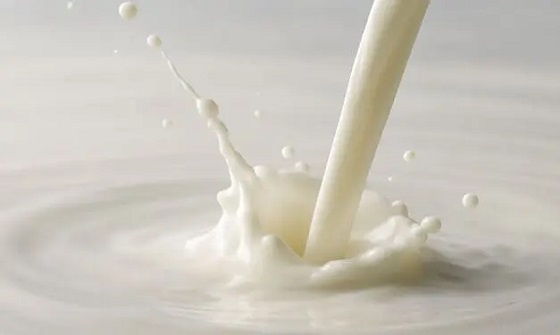Agriculture
How USAID Assisted the Corporate Takeover of Ukrainian Agriculture

From the Brownstone Institute
By
A recent essay titled “The Real Purpose of Net Zero” by Jefferey Jaxon posited that Europe’s current war against farmers in the name of preventing climate change is ultimately designed to inflict famine. Jaxon is not speculating on globalist motives; he is warning humanity of a rapidly unfolding reality that is observable in the perverse lies against cows, denigration of European farmers as enemies of the Earth, and calls by the WHO, WEF, and UN for a plant-based diet dependent entirely on GMOs, synthetic fertilizers, and agrichemicals.
Revelations about the evil doings of the Orwellian-monikered “United States Agency of International Development” (USAID) reveal a roadmap to totalitarian control unwittingly funded by America’s taxpaying proles. USAID’s clandestine machinations have long focused on controlling local and global food supplies as “soft colonization” by multinational chemical, agricultural, and financial corporations. European farmers revolting against climate, wildlife, and animal rights policies are harbingers of this tightening globalist noose.
The roots of the current globalist plan to “save humanity from climate change” link directly to the infamous Kissinger Report, which called to control world food supplies and agriculture as part of a globalist collaboration between nation-states and NGOs to advance US national security interests and “save the world” from human overpopulation using “fertility reduction technologies.” Kissinger’s 1974 Report was created by USAID, the CIA, and various federal agencies, including the USDA.
Fast forward to 2003, the Iraq War justified using fear-mongering propaganda about weapons of mass destruction and neo-conservative malarky about rescuing the Iraqi people. The US-led occupation of Iraq became a rapacious profiteering smorgasbord for colonizing corporations husbanded by USAID. Iraq is heir to the birthplace of human civilization, made possible by early Mesopotamian agriculture: many of the grains, fruits, and vegetables that now feed the world were developed there. Iraq’s farmers saved back 97% of their seed stocks from their own harvests before the US invasion. Under Paul Bremer, Rule 81 (never fully implemented) sought to institute GMO cropping and patented seed varieties, as Cargill, Monsanto, and other corporations descended upon the war-ravaged nation using American tax dollars and USAID.
That playbook was more quietly implemented during the Ukraine War, once again orchestrated by USAID. Before the Russian invasion on February 24, 2022, Ukraine was the breadbasket of Europe, prohibiting GMO technologies and restricting land ownership to Ukrainians. Within months of US intervention, USAID assisted in the dismantling of these protections in the name of “land reforms,” free markets, financial support, improved agricultural efficiency, and rescuing the Ukrainian people. In just two years, over half of Ukraine’s farmland became the property of foreign investors. GMO seeds and drone technology were “donated” by Bayer Corporation, and companies such as GMO seed-seller Syngenta and German chemical manufacturer BASF became the dominant agricultural “stakeholders” in war-torn Ukraine. Russia may withdraw, but Ukraine’s foreign debts, soil degradation, and soft colonization will remain.
The UN, WTO, WHO, and WEF all conspire to peddle a false narrative that cows and peasant farmers are destroying the planet, and that chemical-dependent GMO monocropping, synthetic fertilizers, and patented fake meats and bug burgers must be implemented post haste (by force if necessary) to rescue humanity. The argument that pesticides and synthetic fertilizers (manufactured from natural gas, aka methane) are salvific is patently false. They are, however, highly profitable for chemical companies like Bayer, Dow, and BASF.
Jefferey Jaxon is exactly correct. The Netherlands committed to robust agricultural development following a Nazi embargo that deliberately inflicted mass famine following their collaboration with Allied Forces in Operation Market Garden. France boasts the highest cow population in all of Europe. Ireland’s culture is tightly linked to farming as part of its trauma during the (British-assisted) Irish Potato Famine. The corporate/NGO cabal now uprooting and targeting farmers in these nations and across the EU in the name of staving off climate change and preserving wildlife is a direct outcropping of Kissinger’s grand dystopian scheme launched through USAID in 1974.
Americans watch European farmer protests from afar, largely oblivious that most all of US agriculture was absorbed by the Big Ag Borg generations ago. Currency control linked to a (political, environmental, and economic) social credit scorecard promises the fruition of Kissinger’s demonic plan: “Control the food, control the people.”
Modern humans suffer a double hubris that blinds them to the contemplation of the truth of Jaxon’s hypothesis: a cultish trust in technology, coupled with an irrational faith in their self-perceived moral superiority to past civilizations (Wendell Berry calls this “historical pride”). Yet, as long as mankind has had the capacity to harm another for personal gain, humans have devised ways to control food for power or profit. Siege warfare generally depended on starving defenders of castle walls into submission.
Even if globalist food control proposals are well-intentioned, a monolithic, monocultured, industrial-dependent worldwide food system is a lurking humanitarian disaster. Berry observed:
In a highly centralized and industrialized food-supply system there can be no small disaster. Whether it be a production “error” or a corn blight, the disaster is not foreseen until it exists; it is not recognized until it is widespread.
The current push to dominate global food production using industrial systems is the cornerstone of complete globalist dominion over all of humanity. The “Mark of the Beast” without which no American will buy or sell goods – including guns, bullets, or factory-grown hamburgers and cricket patties – is mere steps away. Mr. Jaxon is correct that these leaders “know these basic historical and current facts,” and that “[f]armers are becoming endangered because of government [climate] policy … and it’s being allowed to happen.” USAID has been actively seeding and watering this dystopia for decades.
Klaus Schwab and Bill Gates are as fully cognizant of this fundamental truth as Henry Kissinger was in 1974. USAID has aided all three. Having lost almost all of their small farms over the last century, Americans are well ahead of Europeans in their near-complete dependence on industrial food.
That’s the plan.
Agriculture
Canada is missing out on the global milk boom

This article supplied by Troy Media.
 By Sylvain Charlebois
By Sylvain Charlebois
With world demand soaring, Canada’s dairy system keeps milk producers locked out of growth, and consumers stuck with high prices
Prime Minister Mark Carney is no Justin Trudeau. While the team around him may be familiar, the tone has clearly shifted. His first week in office signalled a more data-driven, technocratic approach, grounded in pragmatism rather than ideology. That’s welcome news, especially for Canada’s agri-food sector, which has long been overlooked.
Historically, the Liberal party has governed with an urban-centric lens, often sidelining agriculture. That must change. Carney’s pledge to eliminate all interprovincial trade barriers by July 1 was encouraging but whether this includes long-standing obstacles in the agri-food sector remains to be seen. Supply-managed sectors, particularly dairy, remain heavily protected by a tangle of provincially administered quotas (part of Canada’s supply management system, which controls prices and limits production through quotas and tariffs to protect domestic producers). These measures stifle innovation, limit flexibility and distort national productivity.
Consider dairy. Quebec produces nearly 40 per cent of Canada’s milk, despite accounting for just over 20 per cent of the population. This regional imbalance undermines one of supply management’s original promises: preserving dairy farms across the country. Yet protectionism hasn’t preserved diversity—it has accelerated consolidation.
In reality, the number of dairy farms continues to decline, with roughly 90 per cent now concentrated in just a few provinces. On our current path, Canada is projected to lose nearly half of its remaining dairy farms by 2030. Consolidation disproportionately benefits Quebec and Ontario at the expense of smaller producers in the Prairies and Atlantic Canada.
Carney must put dairy reform back on the table, regardless of campaign promises. The sector represents just one per cent of Canada’s GDP, yet
wields outsized influence on policy, benefiting fewer than 9,000 farms out of more than 175,000 nationwide. This is not sustainable. Many Canadian producers are eager to grow, trade and compete globally but are held back by a system designed to insulate rather than enable.
It’s also time to decouple dairy from poultry and eggs. Though also supply managed, those sectors operate with far more vertical integration and
competitiveness. Industrial milk prices in Canada are nearly double those in the United States, undermining both our domestic processors and consumer affordability. These high prices don’t just affect farmers—they directly impact Canadian consumers, who pay more for milk, cheese and other dairy products than many of their international counterparts.
The upcoming renegotiation of CUSMA—the Canada-United States-Mexico Agreement, which replaced NAFTA—is a chance to reset. Rather than resist change, the dairy sector should seize the opportunity to modernize. This includes exploring a more open quota system for export markets. Reforms could also involve a complete overhaul of the Canadian Dairy Commission to increase transparency around pricing. Canadians deserve to know how much milk is wasted each year—estimated at up to a billion litres—and whether a strategic reserve for powdered milk, much like our existing butter reserve, would better serve national food security.
Global milk demand is rising. According to The Dairy News, the world could face a shortage of 30 million tonnes by 2030, three times Canada’s current annual production. Yet under current policy, Canada is not positioned to contribute meaningfully to meeting that demand. The domestic focus on protecting margins and internal price fairness is blinding the sector to broader market realities.
We’ve been here before. The last time CUSMA was renegotiated, Canada offered modest concessions to foreign competitors and then overcompensated its dairy sector for hypothetical losses. This created an overcapitalized industry, inflated farmland prices and diverted attention from more pressing trade and diplomacy challenges, particularly with India and China. This time must be different: structural reform—not compensation—should be the goal.
If Carney is serious about rebooting the Canadian economy, agri-food must be part of the conversation. But that also means the agriculture sector must engage. Industry voices across the country need to call on dairy to evolve, embrace change and step into the 21st century.
Dr. Sylvain Charlebois is a Canadian professor and researcher in food distribution and policy. He is senior director of the Agri-Food Analytics Lab at Dalhousie University and co-host of The Food Professor Podcast. He is frequently cited in the media for his insights on food prices, agricultural trends, and the global food supply chain.
Troy Media empowers Canadian community news outlets by providing independent, insightful analysis and commentary. Our mission is to support local media in helping Canadians stay informed and engaged by delivering reliable content that strengthens community connections and deepens understanding across the country.
Agriculture
Liberal win puts Canada’s farmers and food supply at risk

This article supplied by Troy Media.
A fourth Liberal term means higher carbon taxes and trade risks. Could Canada’s farmers and food security be on the line?
The Liberal Party, now led by Mark Carney, has secured a fourth consecutive term, albeit once again with a minority mandate. This time, however, the Liberals have a stronger hand, as they can rely not only on the NDP but also the Bloc Québécois to maintain power.
This broader base of parliamentary support could provide much-needed political stability at a crucial time, particularly as Canada prepares for a new round of trade negotiations with the United States and Mexico.
For the agri-food sector, the implications are significant. From carbon taxes to trade rules, federal decisions play a decisive role in shaping the costs and risks Canadian farmers face.
First and foremost, carbon pricing will remain a central issue. Carney has made it clear that the industrial carbon tax will stay—a policy that continues to erode the competitiveness of Canada’s agri-food sector, where fuel, fertilizer and transportation costs are especially sensitive to carbon pricing. The tax, currently set at $95 per metric tonne, is scheduled to climb to $170 by 2030.
While consumers may not see this tax directly, businesses certainly do. More concerning is the Liberals’ intention to introduce a border carbon adjustment for imports from countries without equivalent carbon pricing regimes. While this could theoretically protect Canadian industry, it also risks making food even more expensive for Canadian consumers, particularly if the U.S., our largest trading partner, remains uninterested in adopting similar carbon measures. Acting alone risks undermining both our food security and our global competitiveness.
Another looming issue is supply management. Although all parties pledged during the campaign not to alter Canada’s system for dairy, poultry and eggs, this framework—built on quotas and high import tariffs—is increasingly outdated. It is almost certain to come under pressure during trade negotiations. The American dairy lobby, in particular, will continue to demand greater access to Canadian markets. The Liberals have a chance to chart a more forward-looking path. Modernizing supply management could lead to a more competitive, resilient industry while providing consumers with greater choice and better prices.
The previous Parliament’s passage of Bill C-282, which sought to shield supply managed sectors from all future trade negotiations, was a deeply flawed move.
Fortunately, the new parliamentary makeup should make it far less likely that such protectionist legislation will survive. A more pragmatic approach to trade policy appears possible.
On the domestic front, there are reasons for cautious optimism. The Liberals have promised to eliminate remaining federal barriers to interprovincial trade and to improve labour mobility, longstanding obstacles to the efficient movement of agri-food products across Canada. For example, differing provincial rules often prevent products like cheese, meat or wine from being sold freely across provinces, frustrating farmers and limiting consumer choice. Momentum was building before the election, and it must continue if we are serious about building a stronger domestic food economy.
Infrastructure investment is another bright spot. The Liberals pledged more than $5 billion through a Trade Diversification Corridor Fund to upgrade Canada’s severely undercapitalized export infrastructure. Strategic investment in trade gateways is overdue and critical for agri-food exporters looking to reduce reliance on the United States and expand into global markets.
Finally, the Liberal platform was alone in explicitly committing to support food processing in Canada, a crucial pillar of domestic food security. An increased focus on manufacturing will not only create jobs but also reduce reliance on imported food products, making Canada more resilient in the face of global disruptions.
Farmers have long felt sidelined by urban-centric Liberal governments. The past four years were marked by regulatory and trade clashes that deepened that divide. The hope now is that with greater political stability and a clearer focus on competitiveness, the next four years will bring a more constructive relationship between Ottawa and Canada’s agri-food sector.
If the Liberals are serious about food security and economic growth, now is the time to reset the relationship with Canada’s farmers, not ignore them yet again.
Dr. Sylvain Charlebois is a Canadian professor and researcher in food distribution and policy. He is senior director of the Agri-Food Analytics Lab at Dalhousie University and co-host of The Food Professor Podcast. He is frequently cited in the media for his insights on food prices, agricultural trends, and the global food supply chain.
Troy Media empowers Canadian community news outlets by providing independent, insightful analysis and commentary. Our mission is to support local media in helping Canadians stay informed and engaged by delivering reliable content that strengthens community connections and deepens understanding across the country.
-

 Business2 days ago
Business2 days agoCarney pivots from anti American campaign, embracing US and hailing Trump as “transformational president”
-

 Daily Caller1 day ago
Daily Caller1 day agoMisguided Climate Policies Create ‘Real Energy Emergency’ And Permit China To Dominate US
-

 Business2 days ago
Business2 days agoReality check—Canadians are not getting an income tax cut
-

 International1 day ago
International1 day agoIce Surprises – Arctic and Antarctic Ice Sheets Are Stabilizing and Growing
-

 Business2 days ago
Business2 days agoTop business group warns Carney’s ‘net zero’ push spells disaster for Canada’s economy
-

 Alberta1 day ago
Alberta1 day agoBonnyville RCMP targeted by suspect driving a trackhoe – Update
-

 Health2 days ago
Health2 days agoTrump signs order to stop funding for gain-of-function research believed to have caused COVID
-

 Alberta1 day ago
Alberta1 day agoEnergy projects occupy less than three per cent of Alberta’s oil sands region, report says







